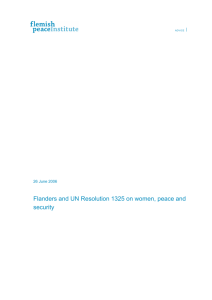mya_wps_04_0
advertisement
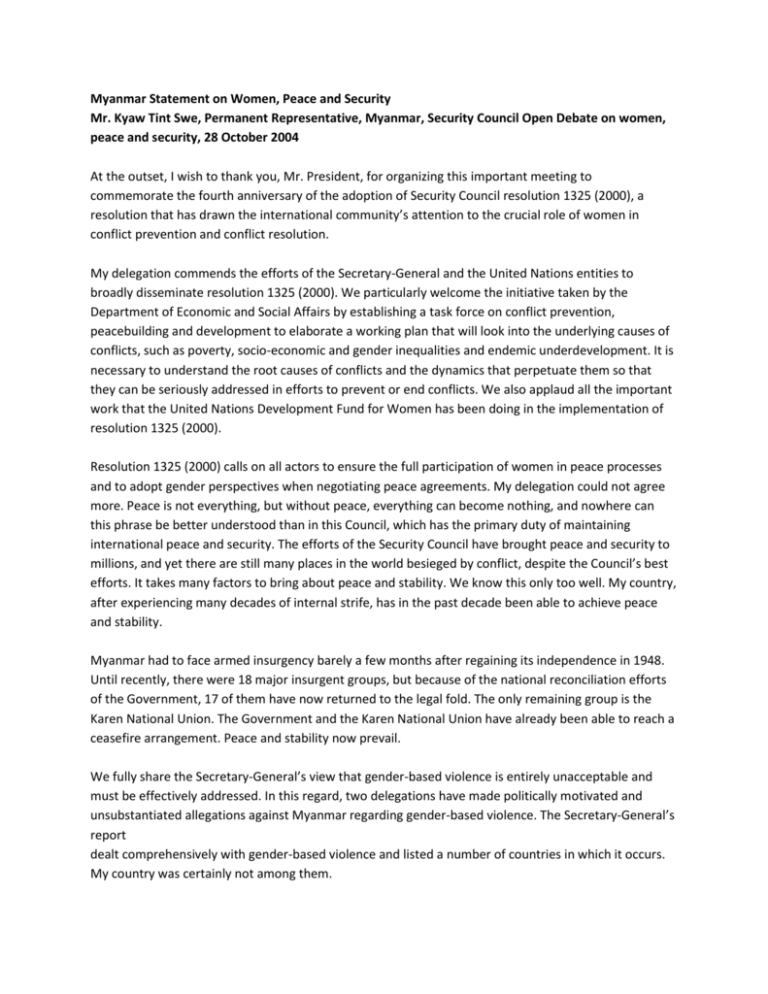
Myanmar Statement on Women, Peace and Security Mr. Kyaw Tint Swe, Permanent Representative, Myanmar, Security Council Open Debate on women, peace and security, 28 October 2004 At the outset, I wish to thank you, Mr. President, for organizing this important meeting to commemorate the fourth anniversary of the adoption of Security Council resolution 1325 (2000), a resolution that has drawn the international community’s attention to the crucial role of women in conflict prevention and conflict resolution. My delegation commends the efforts of the Secretary-General and the United Nations entities to broadly disseminate resolution 1325 (2000). We particularly welcome the initiative taken by the Department of Economic and Social Affairs by establishing a task force on conflict prevention, peacebuilding and development to elaborate a working plan that will look into the underlying causes of conflicts, such as poverty, socio-economic and gender inequalities and endemic underdevelopment. It is necessary to understand the root causes of conflicts and the dynamics that perpetuate them so that they can be seriously addressed in efforts to prevent or end conflicts. We also applaud all the important work that the United Nations Development Fund for Women has been doing in the implementation of resolution 1325 (2000). Resolution 1325 (2000) calls on all actors to ensure the full participation of women in peace processes and to adopt gender perspectives when negotiating peace agreements. My delegation could not agree more. Peace is not everything, but without peace, everything can become nothing, and nowhere can this phrase be better understood than in this Council, which has the primary duty of maintaining international peace and security. The efforts of the Security Council have brought peace and security to millions, and yet there are still many places in the world besieged by conflict, despite the Council’s best efforts. It takes many factors to bring about peace and stability. We know this only too well. My country, after experiencing many decades of internal strife, has in the past decade been able to achieve peace and stability. Myanmar had to face armed insurgency barely a few months after regaining its independence in 1948. Until recently, there were 18 major insurgent groups, but because of the national reconciliation efforts of the Government, 17 of them have now returned to the legal fold. The only remaining group is the Karen National Union. The Government and the Karen National Union have already been able to reach a ceasefire arrangement. Peace and stability now prevail. We fully share the Secretary-General’s view that gender-based violence is entirely unacceptable and must be effectively addressed. In this regard, two delegations have made politically motivated and unsubstantiated allegations against Myanmar regarding gender-based violence. The Secretary-General’s report dealt comprehensively with gender-based violence and listed a number of countries in which it occurs. My country was certainly not among them. The most effective means to protect civilians — particularly those who are most vulnerable, women and children — is to end conflict through peaceful solutions. At present, my country has embarked on an historical path by convening a national convention that brings together delegates from all strata of society and representatives from 17 major armed ethnic groups. Many women delegates are taking part in this historic process, which will bring about lasting peace, stability, development and democracy for all peoples of Myanmar, both women and men. The Secretary-General has rightly maintained that the goals set out in resolution 1325 (2000) require political will and concerted action on the part of the entire international community. My delegation fully subscribes to that view. For our part, we will join hands with others so that the promise held out to women across the globe that their rights will be protected will be fully realized.
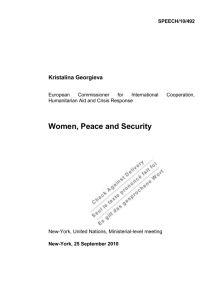
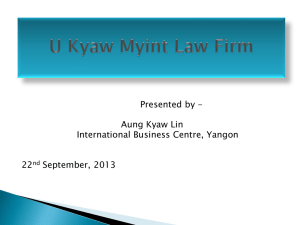
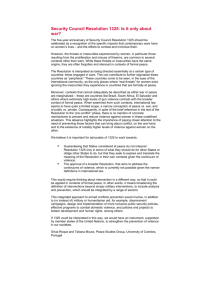
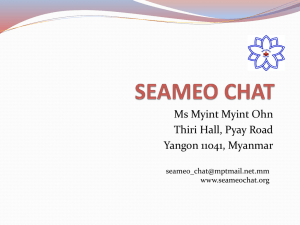
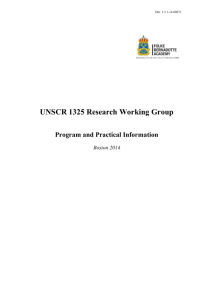
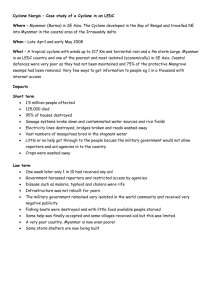
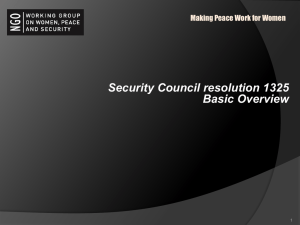
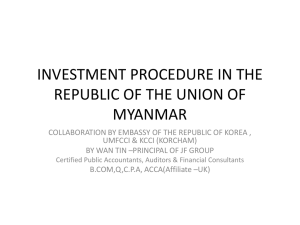
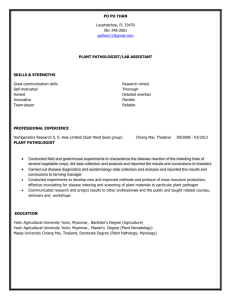
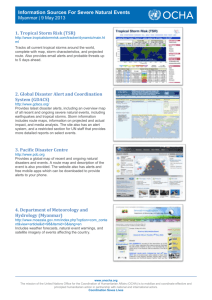
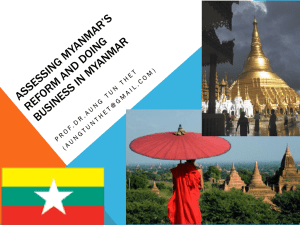
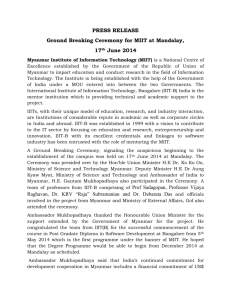
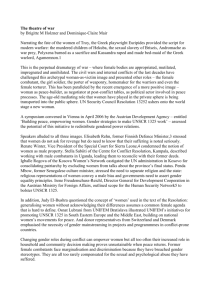
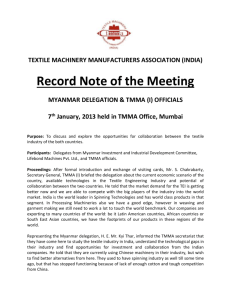
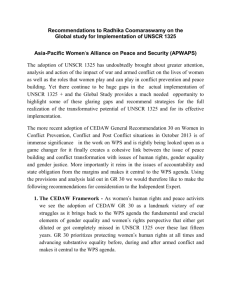
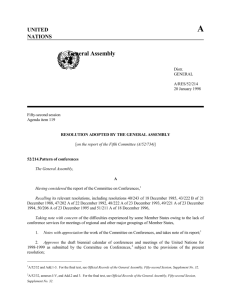
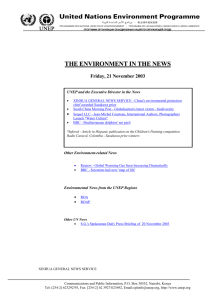
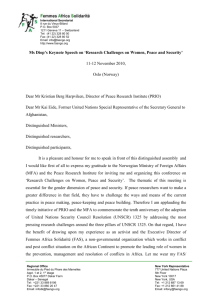
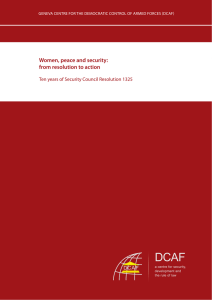
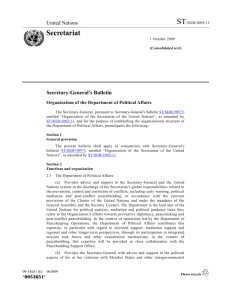
![This article was downloaded by: [University of Warwick] Publisher: Routledge](http://s2.studylib.net/store/data/012432049_1-17f1bfd9e32998b8f2e7af5e5e449604-300x300.png)
